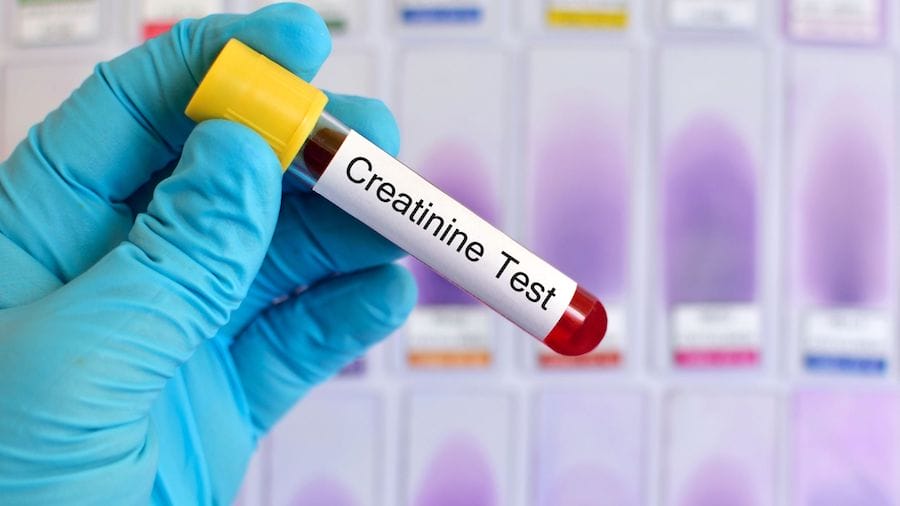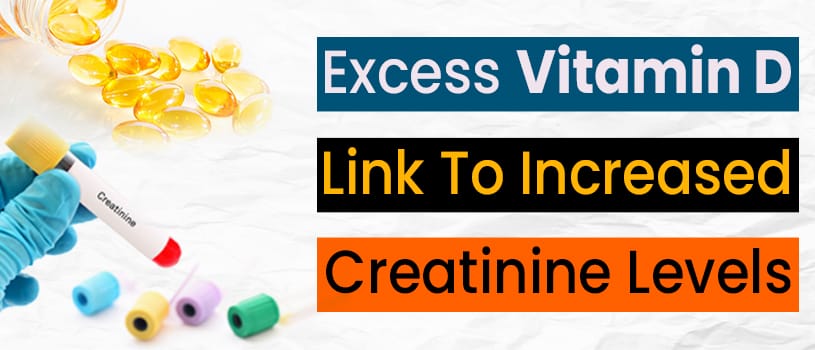When taking Vitamin D, its receptor activation may have pleiotropic effects or have more than one effect in a variety of tissues. Experimental results show that with vitamin D receptor activation, there is an ability to delay the progression of renal disease or kidney disease. It is also a fact that vitamin D receptor activation also helps to reduce albuminuria. But clinical studies have also shown that patients taking vitamin D supplementation have found that Vitamin D link to increased creatinine level and a decline in glomerular filtration rate. Both creatinine and GFR show the level of kidney functioning. The effect of vitamin D receptor activation on creatinine metabolism could explain these findings. These multi- or pleiotropic effects of vitamin D supplementation may help to prevent bone loss and reduce mortality in kidney disease patients. It has the potential to slow the progression of renal or kidney disease.
Despite the apparent benefits in terms of reduced mortality in kidney disease patients and reduced albuminuria, which is a considered surrogate for renal protection, evidence of a drop in estimated glomerular filtration rate (GFR) in a few individuals remains a cause of concern. We can say that Vitamin D and low GFR are interlinked. We may conclude that Vitamin D receptor activation has both positive and negative impacts on kidney function due to its pleiotropic effects, Vitamin D raise creatinine level is the negative impact. For the treatment of renal disease, one can consult for Ayurvedic treatments for creatinine level reduction in Ayurveda. It has proven benefits and has no side effects, unlike allopathic.

Vitamin D and Chronic Kidney Disease-
Here we will talk about Vitamin D and kidney symptoms like Chronic Kidney disease. The ultraviolet (UV) rays of the sun provide vitamin D, but the intensity of sunshine varies among different latitudes. Where you live, the time of day, the season, whether it’s cloudy, and whether or not you’re wearing sunscreen all influence how much UV rays are absorbed. People who live in sunny regions in lower latitudes generally get enough vitamin D, especially in the late fall and winter, when compared to people who reside at higher latitudes. What foods are high in vitamin D? And also it is important to find out which vitamins increase creatinine levels.
Only a few foods naturally contain vitamin D. Fatty fish, such as salmon, sardines, cod, tuna, and halibut, are excellent sources of vitamin D. Vitamin D is added to a variety of meals, including morning cereals and milk. According to food standards, milk must contain at least 100 IU of vitamin D per cup. In the 1930s, milk was fortified with vitamin D to prevent rickets, a bone condition that was common among youngsters at the time. Other dairy products are exempt from fortification requirements. Vitamin D may or may not be added to milk substitutes such as soy milk, rice milk, and non-dairy creamer.

Vitamin D’s Advantages-
- Vitamin D contributes to the creation and maintenance of healthy bones.
- Maintaining the proper calcium and phosphorus levels in the blood.
- Preventing the weakening or malformation of bones.
- Rickets and Osteomalacia prevention in infants and adults.
Vitamin D overdose can be dangerous but the question is the people with low vitamin d cause low creatinine. For babies, the recommended maximum consumption is 25 mcg (1,000 IU), while for children and adults with appropriate renal function, the recommended maximum intake is 50 mcg (2,000 IU).
Vitamin D supplements & creatinine-
Low vitamin D levels are common among persons with renal or kidney failure or person with high creatinine level. If your vitamin D level is low, your doctor may recommend that you take a supplement. But, it is also fact that Vitamin D link to increased creatinine level. Your doctor can determine whether or not a supplement is appropriate for you and whether or not you require it. Before using any over-the-counter vitamin, mineral, diet supplement, or pharmaceutical, consult your doctor. If not taken properly, these things may be dangerous to patients with chronic kidney disease (CKD).
The link between vitamin D, calcium, phosphorus, and parathyroid hormone (PTH)-
- Vitamin D receptors are abundant in healthy kidneys, and they serve an important role in converting vitamin D to its active form. This modulates parathyroid hormone and helps balance calcium and phosphorus in your body by controlling the absorption of these minerals from your food (PTH).
- When the kidneys fail, they lose their ability to activate vitamin D. PTH will try to overcompensate and go out of range if activated vitamin D isn’t present to manage calcium and phosphorus levels in the blood.
- The parathyroid glands, which are positioned near the thyroid glands in the neck, secrete PTH. The Parathyroid glands may mistakenly believe there isn’t enough calcium in the blood and generates too much parathyroid hormone, which urges the body to withdraw calcium from the bones and put it into the bloodstream.
- Hyperparathyroidism can occur from an excess of PTH, resulting in bone discomfort and easily fractured bones.
- Hyperparathyroidism is a danger for all people with renal failure. As a result, PTH levels are routinely checked in the lab every three months or more frequently if necessary.
- Excess calcium in the bloodstream can cause serious issues. Calcium can build up in soft tissues, causing “little rocks” to form. These calcifications or deposits will never go away.
- Calcification has major ramifications. Blood flow may be restricted if the heart becomes calcified, which could lead to a heart attack. Calcification of the lungs can cause breathing problems. Calcification in joints can also cause excruciating pain.
- Like Vitamin D, there is cause and effect relationship between vitamin b12 and creatinine and does vitamin c increase creatinine levels?

Ayurvedic Medication of vitamin D for dialysis patients-
From the discussed article we have come to know that Vitamin D and low GFR are interrelated, and also come to the fact that Vitamin D link to increased creatinine level. An Ayurvedic health practitioner may administer activated vitamin D to inhibit PTH generation. In a person with CKD who has developed a high PTH level can take Ayurvedic treatment for reducing high creatinine levels. Meanwhile, those who aren’t on dialysis or peritoneal dialysis will be given an oral version of activated vitamin D or generic calcitriol (made with natural herbs) to take. PTH levels are monitored on a regular basis to ensure that the medication dose is correct and that PTH is lowered sufficiently but not excessively. The doctor, nurse, and dietitian are all keeping an eye on the delicate line.
Because there is an increased danger of calcium-phosphorus deposits in the soft tissues if a person has a high blood level of phosphorus or calcium, the physician will typically choose not to give the treatment of high PTH with the use of activated Vitamin D. It’s critical for all renal failure patients to maintain normal phosphorus and calcium blood levels. A renal dietician works with dialysis patients on a regular basis to ensure that they aren’t consuming too much phosphorus or calcium-rich foods and that phosphorus binder are taken correctly.

